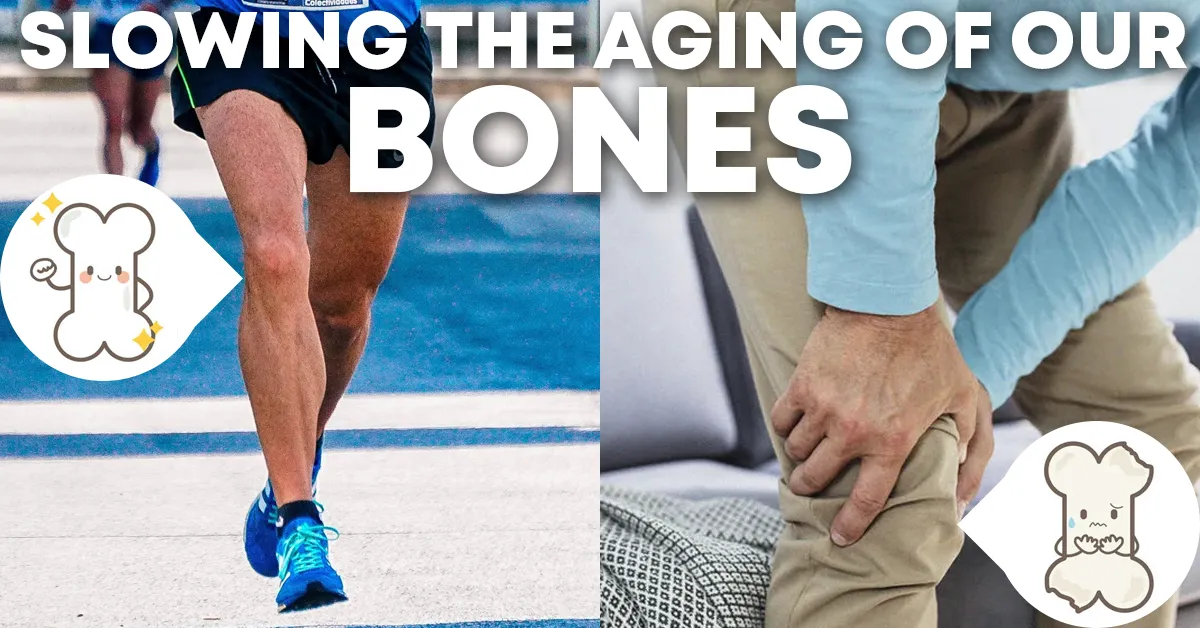Movement is life – that’s why our bones and muscles play a crucial role in what we do and enjoy every day. Our bones and muscles have to be well taken care of to ensure they can serve us our entire lives.
The foods we eat, lifestyle choices we make, and overall how we treat our body can influence the long term health of our bones.
How do our bones change as we age?
The number of bones we have decreases as we age. We are born with around 300 bones, but reach adulthood with 206 because some of our bones merge together as a part of our growth.
Our bones naturally start to deteriorate in relation to our estrogen or testosterone levels depending on gender. Estrogen levels generally decline before testosterone so women will often see their bones begin to deteriorate first. By age 65 though this rate evens out to be the same regardless of gender.
Why do our bones deteriorate?
When your bones lose mass and/or density is because the bones are losing calcium and other crucial minerals. Often these minerals are absorbed into your body rather than remaining in the bones.
All of this bone deterioration can cause you to shrink, or become shorter. After age 40 you will lose about half an inch of height every decade, with another 1 to 3 inches being lost after the age of 70.
This loss of height is also because of the decrease in fluids between our joints, most notably in our spine. The vertebrae in your spine slowly move close together as fluid is lost.
What is osteoporosis?
Osteoporosis is a bone condition that affects 1 in 5 women and 1 in 20 men, over the age of 50 (CDC). Your bones constantly breakdown and are replaced because they are made of living tissue. Someone who has osteoporosis experiences a regular breakdown of bones – but their regrowth is too slow. This causes the bone to develop a weak interior.
Most people do not know they have osteoporosis until they break a bone because there are rarely any symptoms prior. However, there are “bone density scans” that can help diagnose osteoporosis. If you are over the age of 65 or have a history of osteoporosis in your family, talk to your provider about being tested.
What can you do to keep your bones healthy?
Keeping your bones strong and healthy starts with your diet. Vitamin D and calcium play an important role in keeping your bones strong. While the most common way to receive vitamin D is via sun exposure, about half of Americans still are not getting enough vitamin D. In Minnesota winters, this is understandable as we have fewer hours of daylight and naturally spend more time inside.
Consider supplementing your vitamin D and calcium if your consumption is too low or if your provider advises you to do so.
Secondly, make physical activity a priority – for so many reasons, including the health of your bones! The Mayo Clinic says weight-bearing exercises, including walking and jogging, can be great ways to slow bone loss.
Another piece of common advice – is to not smoke and limit your alcohol consumption. The toxins in these substances can accelerate your bone deterioration.
Why is your body weight important?
Maintaining healthy body weight is important for many reasons, bone health is no different. Excess weight puts additional stress on your bones, increasing your risk of damage. Being underweight poses a similar issue as a thin frame can increase your chance of early bone loss.


